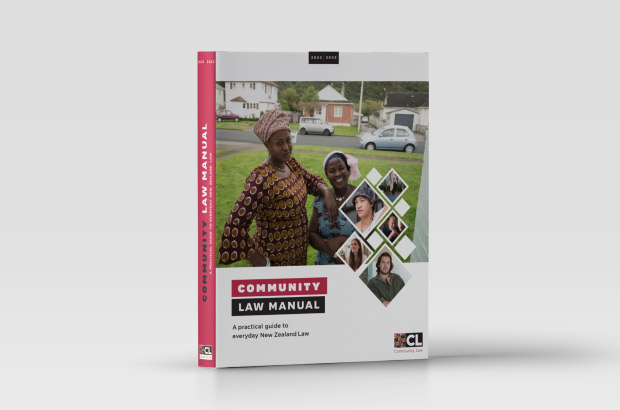Enduring powers of attorney: Planning ahead by choosing someone to make decisions for you
How to create an enduring power of attorney (EPA)
Do I need a lawyer if I want to create an enduring power of attorney?
Protection of Personal and Property Rights Act 1988, s 94A
You will need to get either a lawyer, a qualified legal executive, or a representative from a trustee corporation.
It’s best to get full, independent advice from a lawyer with experience in this area before creating your EPA. They can advise you about what terms you might want to include in the EPA, and they can make sure it properly expresses what you want to happen.
What should I consider before making an EPA?
Protection of Personal and Property Rights Act 1988, ss 97, 99A, 99B, 107
You’ll need to consider:
- who you want to be your attorney (see: “Choosing an attorney: someone to make decisions on your behalf”)
- who your attorney should consult with before making decisions, or particular types of decisions (see: “Who should I choose to make decisions on my behalf?”)
- who your attorney should keep informed about decisions, or particular types of decisions, or who should be given particular information if they ask
- who you want to assess your mental capacity – you can choose the particular type of health professional who’ll do the assessment, as long as they are qualified to assess mental capacity (see: “Who will assess whether I am mentally capable”)
- whether you want your property attorney to be able to make decisions that will benefit them financially (see: “Can attorneys make decisions that will benefit themselves financially?”)
- whether you want to name back-up attorneys – you can name another person (a “successor attorney”) who’ll take over as if your attorney becomes unable to act (see: “Can I appoint back-up attorneys?”)
- the scope of the decisions your attorney can make – for example, if you want your property attorney to be able to make a will for you (see: “What decisions can my attorney make on my behalf?”).
Further information to include in a property EPA
Protection of Personal and Property Rights Act 1988, s 97
You should tell the attorney for your property EPA what you own, where they can find possessions and important documents, and what your exact wishes are. Specifically:
- list all your main assets, including your house, car, bank accounts, life insurance policies, furniture and jewellery
- list any money owed to you or other assets that you’ve lent out
- list your debts and other liabilities (for example, that you’re a guarantor for someone’s loan)
- record where you keep your important documents, like the title deed to your house, birth certificate, and insurance policies
- decide what things you want your attorney to able to do on your behalf – these powers can be as limited or as wide as you choose (see: “What decisions can my attorneys make on my behalf?”)
- state when the EPA comes into effect – this can be immediately, at a specified time, or only if and when you lose mental capacity and become unable to manage your property affairs (see: “When will my EPA kick in?”).
Requirements for creating a legally valid EPA
Protection of Personal and Property Rights Act 1988, ss 94A, 95, 112 Protection of Personal and Property Rights (Enduring Powers of Attorney Forms and Prescribed Information) Regulations 2008
This section explains the current requirements to make a valid EPA.
If you made your EPA before 25 September 2008, the rules were different and your EPA is still valid, even if it doesn’t meet the requirements below.
The new requirements introduced in 2008 place more responsibility on your witness – they have to be a lawyer or someone with professional knowledge about EPAs and they have to explain the effect of your EPA to you.
To be valid, your enduring power of attorney has to meet these requirements:
- You have to complete the correct form.
- The forms are available from lawyers and trustee companies (like the Public Trust or the Māori Trustee/Te Tumu Paeroa).
- You can also download a copy of the form from the Office of Senior Citizens website, here (or go to www.officeforseniors.govt.nz and search “forms,” or navigate to Enduring power of attorney).
- You must sign the EPA, and this must be witnessed by someone who is:
- a lawyer, a qualified legal executive with at least one year’s experience (they must be working for and directly supervised by a lawyer), or someone from a trustee company (like Public Trust or the Māori Trustee/Te Tumu Paeroa), and
- independent from any of your attorneys (however, it’s allowed if you’re appointing a trustee company or a lawyer as your attorney, and the witness works at the same trustee company or law firm).
- Your witness has to sign a certificate to confirm that they’re independent of your witness (unless the exception for trustee companies or lawyers applies).
- Your witness must sign a statement confirming that:
- they’ve explained the effects and implications of the EPA to you
- they’ve explained your legal rights, including your right to suspend or cancel the power of attorney
- they believe on reasonable grounds that you understand the EPA and its potential risks and consequences, and that you’re not being pressured by anyone to sign the EPA
- they have no reason to suspect you may be mentally incapable.
- Your attorney (or attorneys) has to sign the EPA, and this has to be witnessed, but it doesn’t have to be witnessed by a lawyer. Your attorney’s signature can be witnessed by anyone over 18 except:
- you or your own witness
- a relative of the attorney, including the attorney’s spouse or partner, or
- anyone living at the same address as the attorney.


